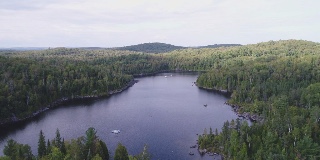
Il n’y a toujours pas de planète B | There’s still no planet B
Qu’est-ce qui devient possible quand notre compréhension des écosystèmes est ancrée dans nos enjeux sociaux ?
Comment pouvons-nous utiliser les pratiques d’intelligence collective afin de guider l’exploration scientifique vers un futur plus durable tout en respectant les différentes visions du monde ?
Quel est le rôle de la science ouverte dans l’innovation socio-écologique ?
Les activités humaines mettent la planète en danger en dégradant les écosystèmes qui nous supportent, limant les opportunités pour les générations futures et restreignant le futur que nous désirons pour notre planète.
Nous nous devons de mieux comprendre les limites de notre planète tout en ré-établissant notre connexion au monde naturel, aux autres, et d’avoir le courage de contribuer a la restauration et la régénération de nos écosystèmes.
Comment la science des écosystèmes peut-elle influencer les décisions sociétales pour un futur plus durable ?
Comment peut-on intégrer les différentes visions du monde afin de travailler plus activement à trouver des solutions applicables ?
What becomes possible when our knowledge of ecosystem science is fully grounded in societal needs?
How can we use collective intelligence practices to inform scientific explorations for a sustainable future while respecting different worldviews?
What is the role of open science in social-ecological innovation?
Current human activities are putting the planet at risk by degrading the ecosystems we rely on, limiting opportunities for future generations and restricting the possible futures we wish to cultivate.
We need to understand earth’s limits while re-establishing our connections to the natural world, each other, and have the courage to contribute to restore and regenerate our ecosystems.
What can we learn from ecosystem science that could dramatically impact our societal decision making for a sustainable future?
How do we integrate different worldviews to work more actively to find applicable solutions?
Additional Details
Invitation PDF -
Region -
Calling Question
Comment la science écosystémique, les gens et le lieu peuvent devenir des partenaires courageux dans une transformation vers un futur durable pour tous? How can ecosystem science, people, and place become courageous partners to transform towards a sust
Event Hosts
Samantha Slade, Paul Messer, Chris Corrigan Jonathan Jubinville, Roxanne Maranger, Nicholas Fortin-St. Gelas
Registration Details
This is a 3 day residential based training in the beautiful location of the Université de Montreal’s Biological Field Station in the Laurentian region of Quebec on the Art of Hosting conversations that matter. This is a bilingual (English/French) event. Location: At the Biology Station of University of Montréal Costs 700$ – 1200$ + taxes Costs include: Training Meals Materiels Accommodation (3 nights – arrival on July 8th after your supper)
More information email - paul@percolab.com
Contribution to the center - No
Country - Canada